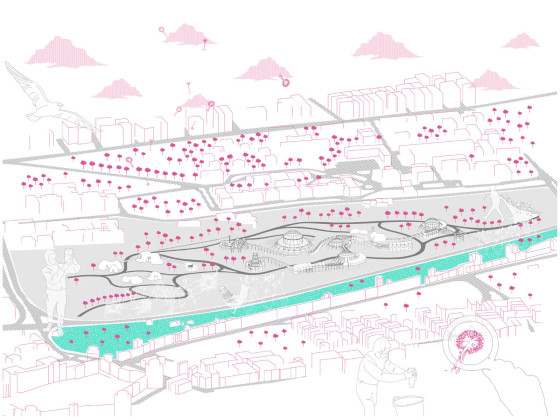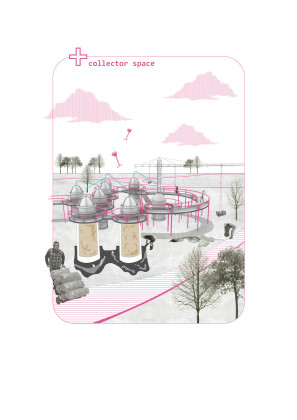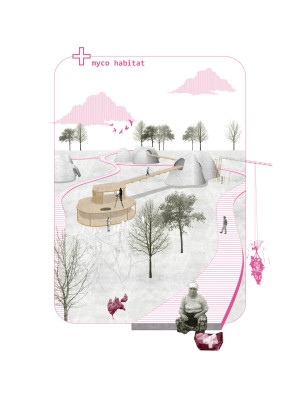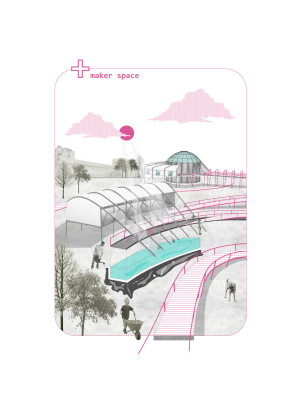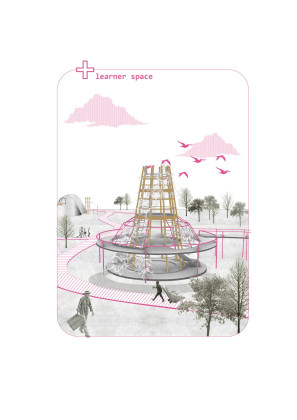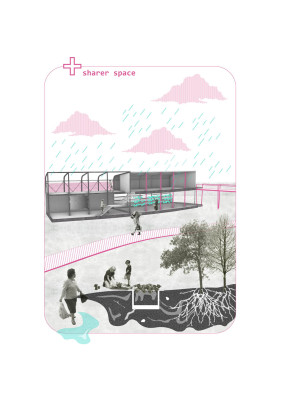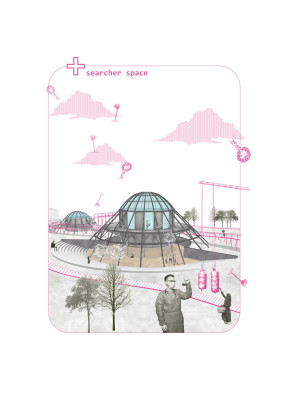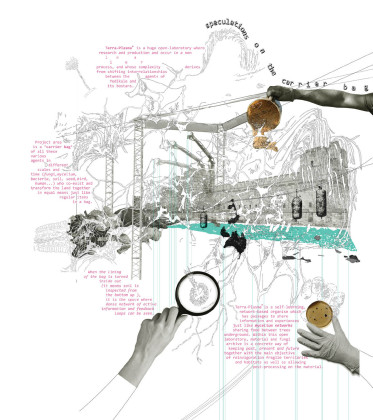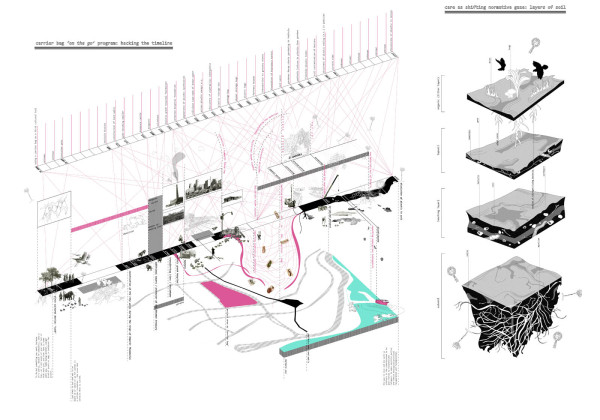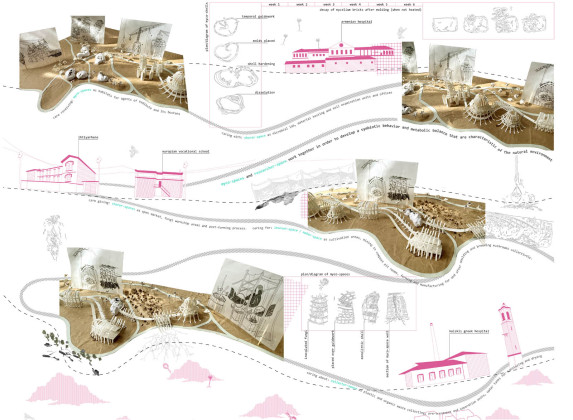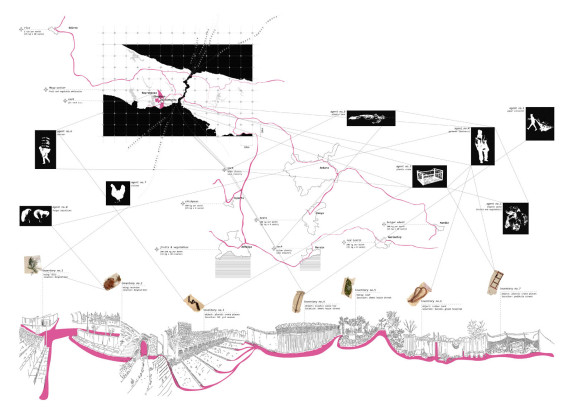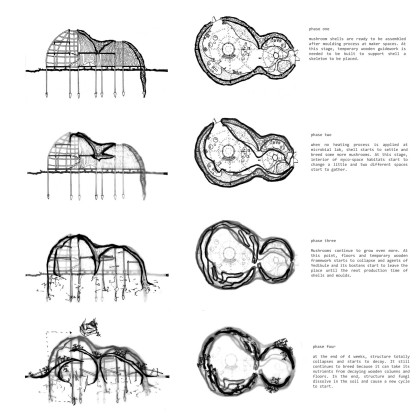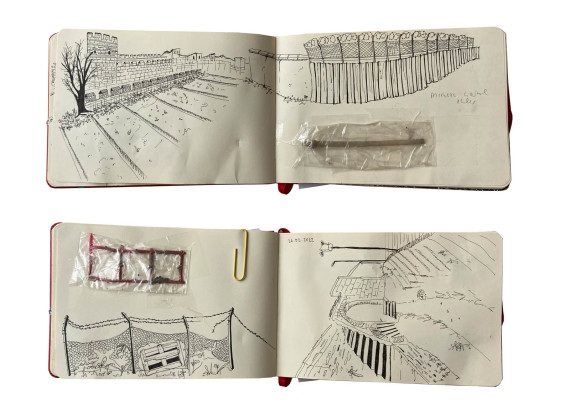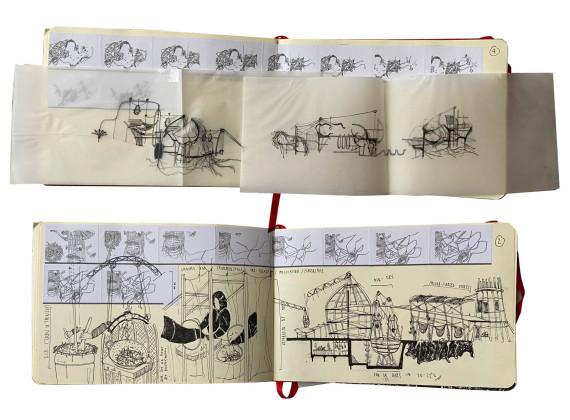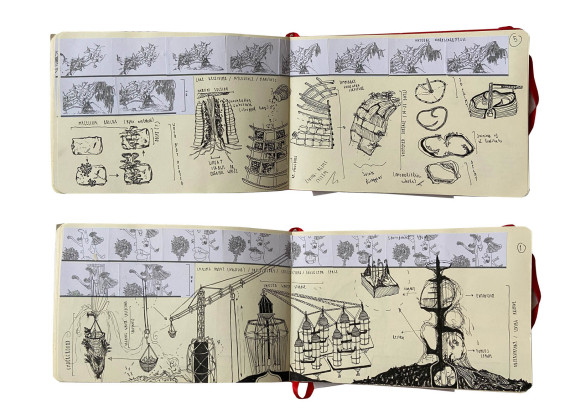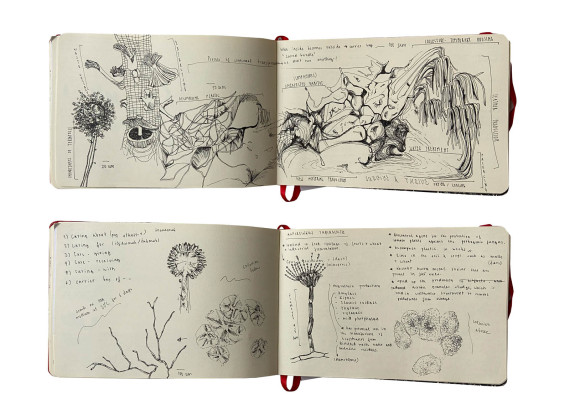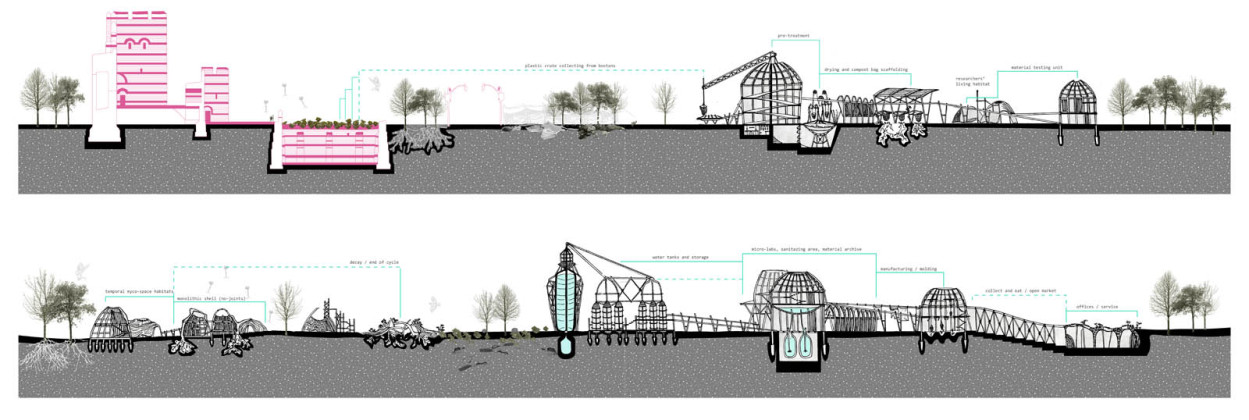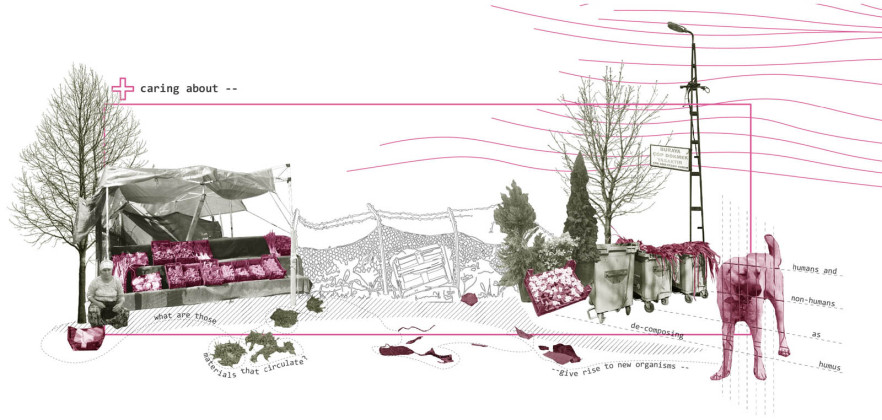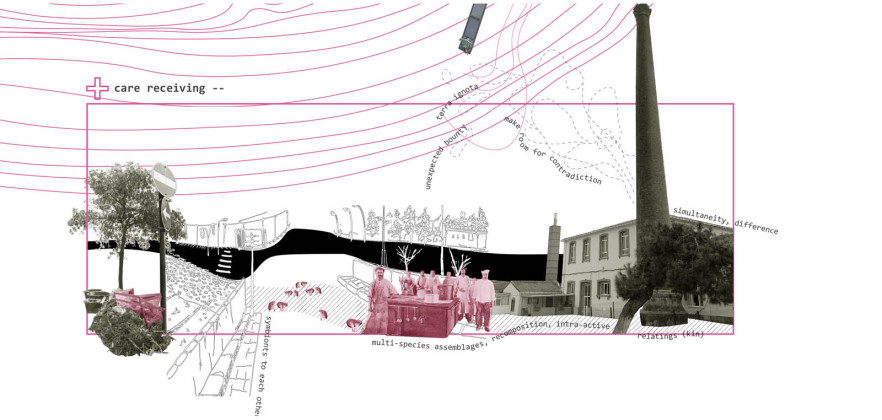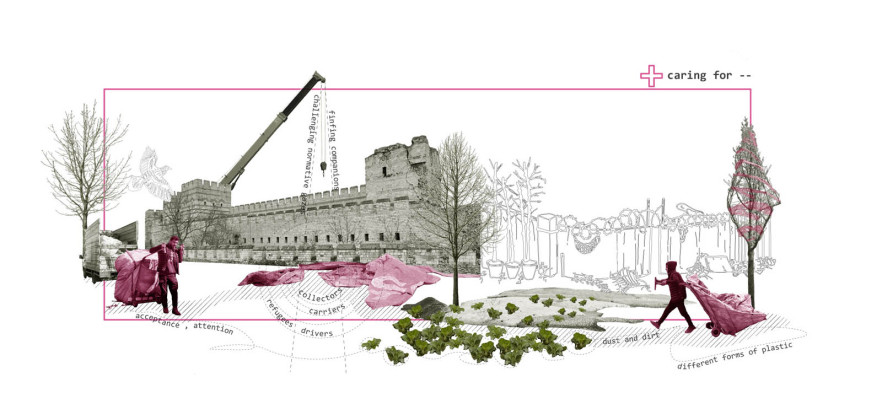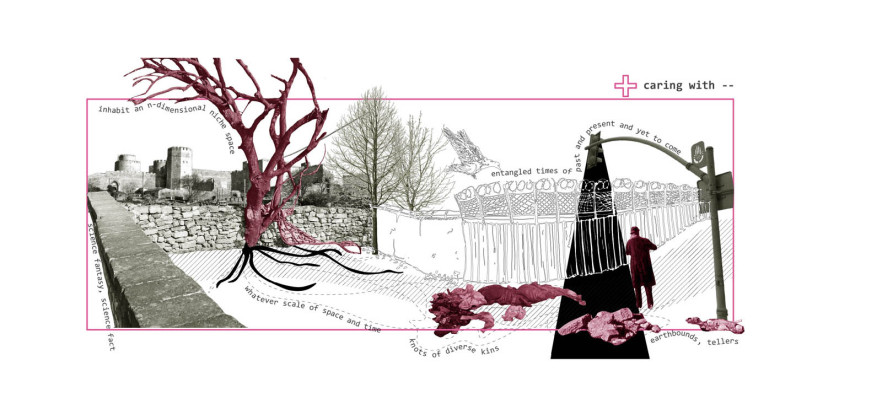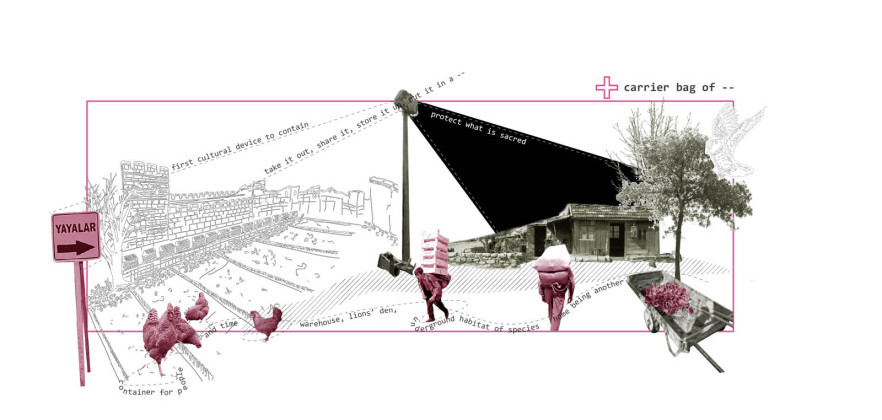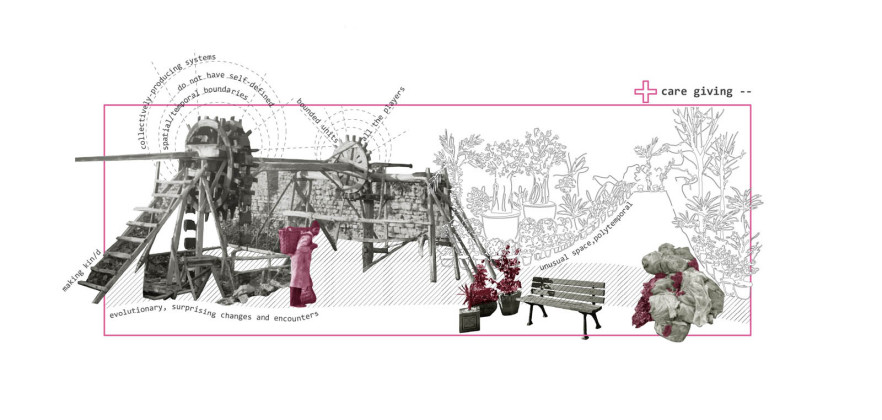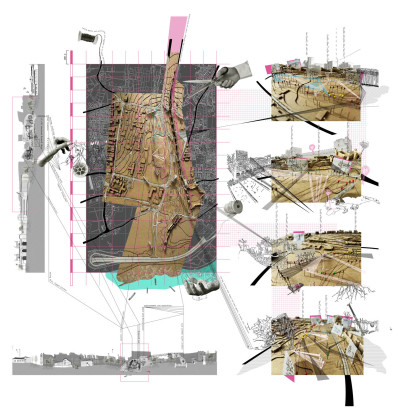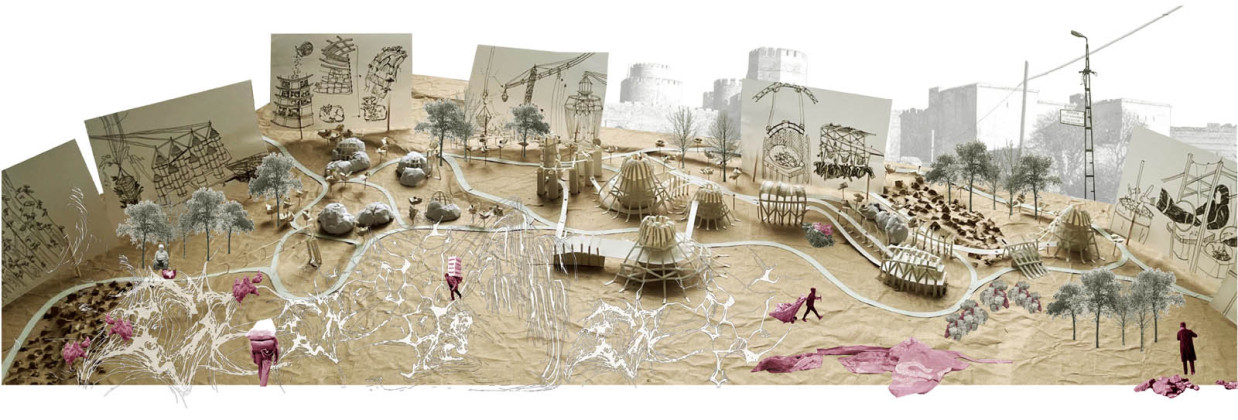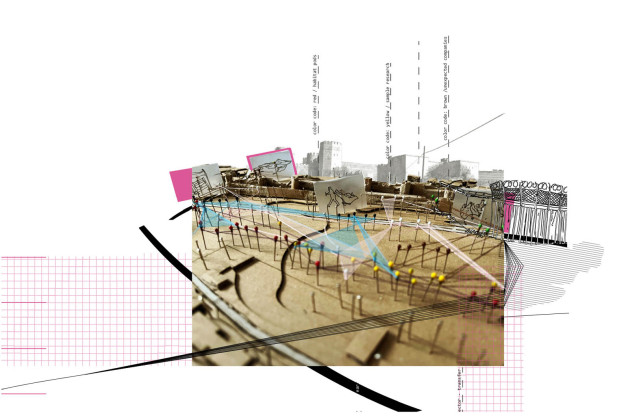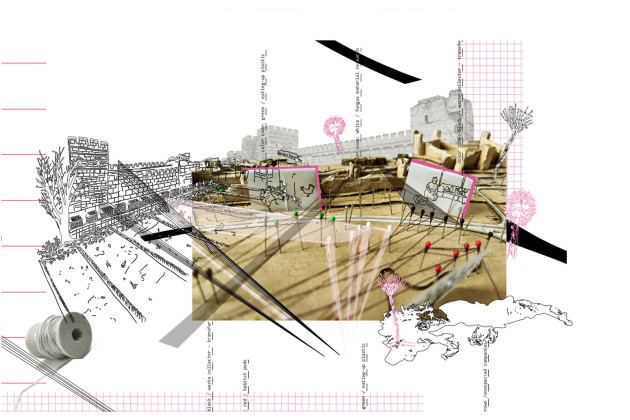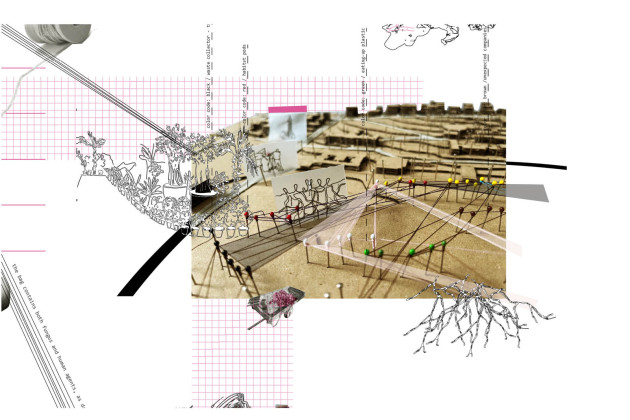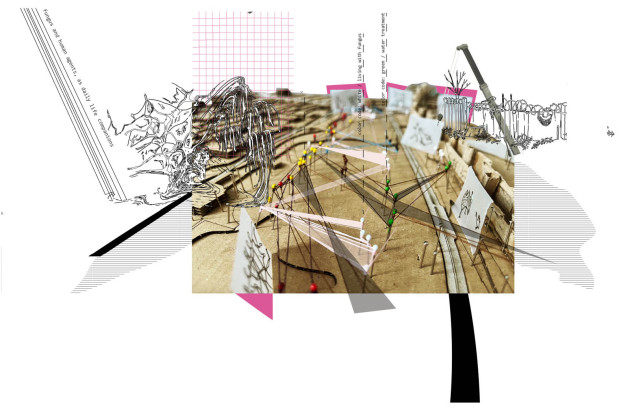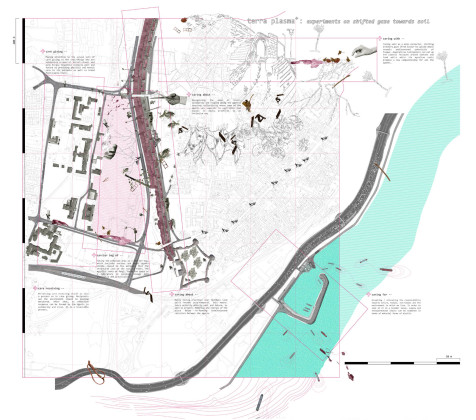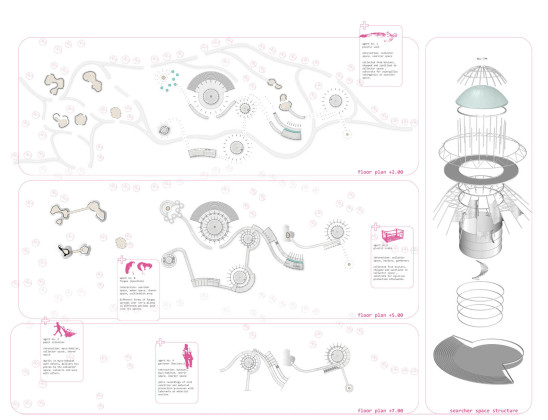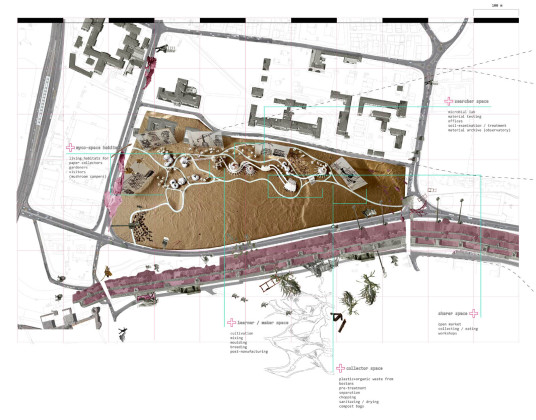Terra Plasma+
Istanbul Technical University, Architectural Design Master's student Seray Rusçuklu, describes her undergraduate diploma project: Terra Plasma+ : Experiments on Shifted Gaze Towards Soil, A Garden for Caring: Curing with.
The jury consulted by Aslıhan Şenel and Funda Uz within the scope of the 2021-2022 spring semester diploma project of ITU Faculty of Architecture.
Terra Plasma+ : Experiments on Shifted Gaze Towards Soil, A Garden for Caring: Curing with
plasma: "form, shape" (a sense now obsolete), a more classical form of earlier plasm; from Late Latin plasma, from Greek plasma "something molded or created. mid 17th century (in the sense ('characteristic of moulding'): from French plastique or Latin plasticus, from Greek plastikos, from plassein 'to mould'."
Yedikule bostans have a very rich narrative, dating back to the 3rd century, in providing food to the city and in continuous production. When food supply chains and the cycle of the soil is looked at in a broader sense, transportation routes can be examined in terms of material forms of plastic. This indicates; we are living in a "plasticocene" period inside the anthropocene simultaneously. Despite Yedikule Bostans being a precious living green in the city, it is ironic that, the very same soil which is thousands of years old who carries living beings, stories, memories and traces is being polluted by using plastic crates, carrier bags and rubber ties in order to stock, share and transfer the products this soil provides.
These unconscious actions affect the past and future, as well as the present. Deciphering relationships among different human and non-human agents of Yedikule-Balıklı area, reveals intertwined networks of living, experience, time and stories. Care means shifting the normative gaze, trying to see things from a different perspective than usual. Here, the carrier bag is both used as a metaphor and literal being. Humans' first device was a carrier bag to contain, share and store things as well as it is the most used thing in Yedikule Bostans to provide food supply. Also, Yedikule land walls act as a carrier bag because for all those years, they were guarded by gardeners and kept materials and gardening stuff as well as prisoners, lions, treasure, soldiers, arms, maize and food and stories…
Terra Plasma+ is an open-laboratory where the possibilities of experience and knowledge can be discovered anew. It can only be seen fully when it is looked at cautiously. In a certain period of time, a scenery can only be seen and generated once. Terra Plasma+ is formed by the carrier bag(s) metaphor of Yedikule ever since the beginning of time. This bag jumps among scales, realities and life-cycles; holds things in an equal way in order to take them out, eat them, share them, store them up for winter, put them in the medicine bundle or transform them into some other forms of randomness. Yedikule land walls act(ed) as a carrier bag by keeping arms, soldiers, prisoners, lions, maize, food, gardens and gardeners, secrets, stories and memories. The carrier bag of Terra Plasma+ on the other hand; includes ancient soil, spirit of healing waters of Yedikule, some special fungus, spores, organic waste of hospitals nearby, a lot of plastic, refugees, paper collectors, carriers, cockerels, respect, equality and last but not least: unexpected companionships.
Interconnected relationships among the program units give rise to unexpected companionships. This means; since a researcher's lab is also hers/his living space, it is quite possible for her/him to coincide with any material provider (paper collector, gardener) or anyone who is here to germinate mushrooms or stopped by to eat something in the collective eating hall. When the breeding process is not controlled, living pods will be temporal and invaded by mushrooms as shared spaces of the agents/inhabitants of equality.
When an analogy is drawn between the smallest structural unit of the sack, plastic eating fungus' roots (also called mycelium) could count as a strategy in order to conduct further research on new building materials and water treatment for the area. By not separating all the agents but making room for encounters and equality, a researcher's lab can turn into a habitat in which a paper collector can be a part of. Growing fungus can be a part of everyday-life practice and a modern interpretation of using all parts of an animal in Yedikule in former times. Skin for leather, waste for gardens, meat for butcher and money... In the light of this analogy, forms of plastic in the area (crates, rubbers and carrier bags) could be eaten (by special fungi and), transformed into something new, used to purify water. By doing all these things, the carrier bag itself makes kins among the agents by offering them a more equal life. Caring with the idea of shifted gaze could open an interval to see what is beyond and hidden already lies right beside us.
References:
- Fisher, E. (1979). Carrier Bag Theory of Evolution
- Le Guin, U. K., & Haraway, D. P. (2019). The carrier bag theory of fiction. London: Ignota Books. (pp. 149-154).
- Tsing, A. L. (2015). The mushroom at the end of the world: On the possibility of life in capitalist ruins. Princeton University Press.
- Haraway, D. J. (2016). Staying with the trouble: Making kin in the Chthulucene. Duke University Press.
- Gabauer, A., Knierbein, S., Cohen, N., Lebuhn, H., Trogal, K., Viderman, T., & Haas, T. (2022). Care and the city: Encounters with urban studies. Taylor & Francis.
- Evren, B. (2006). Surların Öte Yanı -The Other Side of City Walls. Zeytinburnu Municipality, Istanbul, Türkiye.
- Aslıhan Demirtaş, Röportaj, İstanbul'un 1600 yıllık biricik kentsel tarım geleneği var-Yedikule Bostanları
 31.01.2024
31.01.2024



